Changrong Xiao
From Automation to Augmentation: Large Language Models Elevating Essay Scoring Landscape
Jan 12, 2024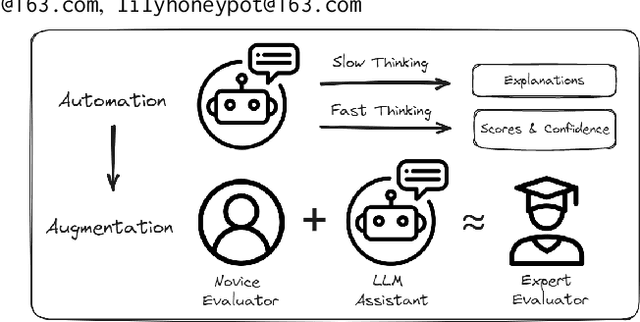
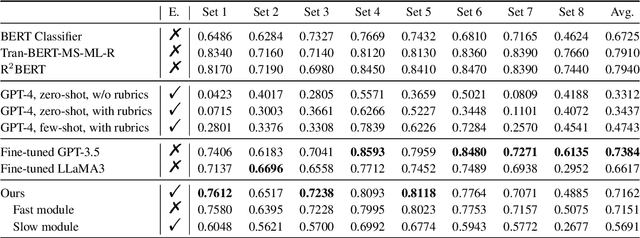

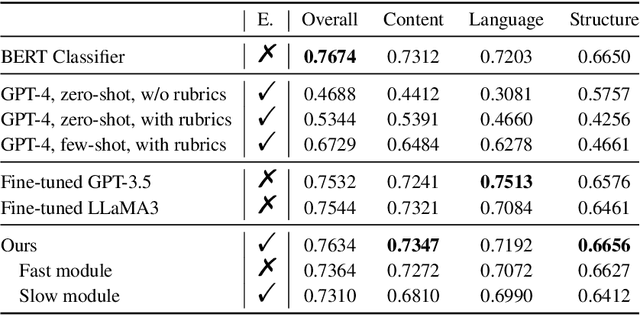
Abstract:Receiving immediate and personalized feedback is crucial for second-language learners, and Automated Essay Scoring (AES) systems are a vital resource when human instructors are unavailable. This study investigates the effectiveness of Large Language Models (LLMs), specifically GPT-4 and fine-tuned GPT-3.5, as tools for AES. Our comprehensive set of experiments, conducted on both public and private datasets, highlights the remarkable advantages of LLM-based AES systems. They include superior accuracy, consistency, generalizability, and interpretability, with fine-tuned GPT-3.5 surpassing traditional grading models. Additionally, we undertake LLM-assisted human evaluation experiments involving both novice and expert graders. One pivotal discovery is that LLMs not only automate the grading process but also enhance the performance of human graders. Novice graders when provided with feedback generated by LLMs, achieve a level of accuracy on par with experts, while experts become more efficient and maintain greater consistency in their assessments. These results underscore the potential of LLMs in educational technology, paving the way for effective collaboration between humans and AI, ultimately leading to transformative learning experiences through AI-generated feedback.
Multimodal Data Augmentation for Image Captioning using Diffusion Models
May 03, 2023
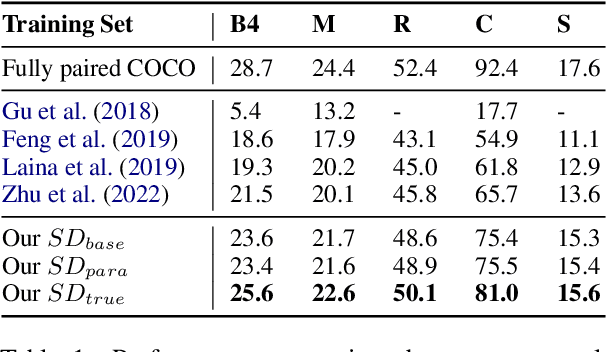
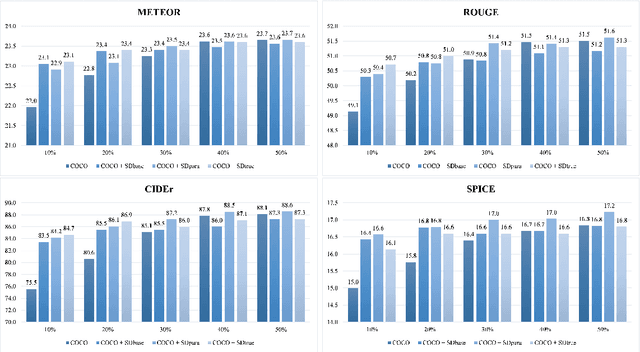
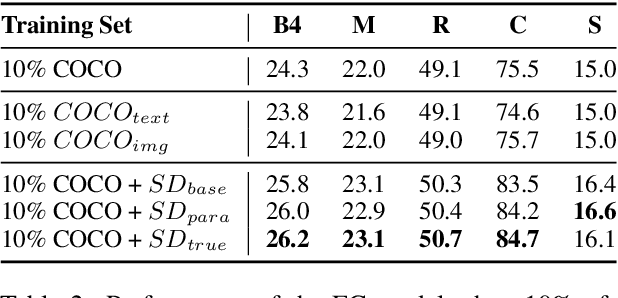
Abstract:Image captioning, an important vision-language task, often requires a tremendous number of finely labeled image-caption pairs for learning the underlying alignment between images and texts. In this paper, we proposed a multimodal data augmentation method, leveraging a recent text-to-image model called Stable Diffusion, to expand the training set via high-quality generation of image-caption pairs. Extensive experiments on the MS COCO dataset demonstrate the advantages of our approach over several benchmark methods, and particularly a significant boost when having fewer training instances. In addition, models trained on our augmented datasets also outperform prior unpaired image captioning methods by a large margin. Finally, further improvement regarding the training efficiency and effectiveness can be obtained after intentionally filtering the generated data based on quality assessment.
 Add to Chrome
Add to Chrome Add to Firefox
Add to Firefox Add to Edge
Add to Edge